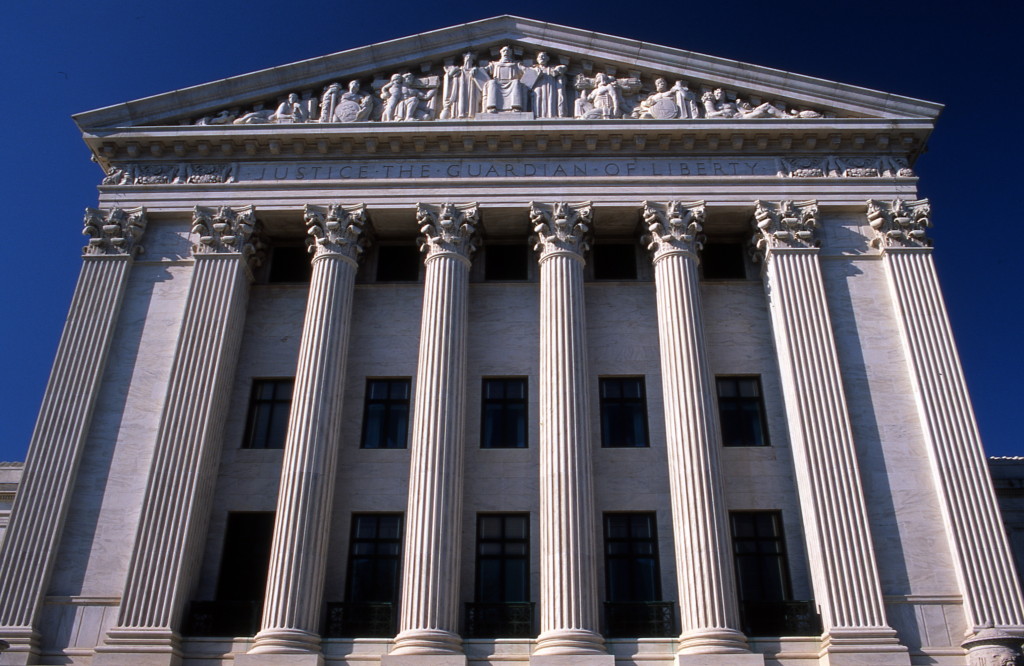TWH – On August 15, 2019, the Department of Labor issued proposed rules for hiring federal contractors titled, “Implementing Legal Requirements Regarding the Equal Opportunity Clause’s Religious Exemption.”
The proposed rules would allow some federal contractors to restrict their hiring to people with similar religious values and beliefs. Under the new rules, the conditions would also expand which workers could refuse to take part in certain medical procedure such as abortions, assist in suicides, or provide birth control.
The federal government contracts with about 420,000 agencies.
It is not clear how these rules would apply to Pagans, Heathens and polytheists or, for that matter, other groups such as atheists, or even, in some cases, progressive Christians and Jews. All the examples in the proposed rules involve defending social conservative values.
Minerva of Lady Liberty League considers these proposed rules to be “stepping back in time and in tolerance.” When asked if Pagans might be able to benefit from these rules, she acknowledged a theoretical potential benefit, but said, “In practice, it is more likely that this [change] would be detrimental to Pagans.”
These new requirements define religious institutions very broadly. Those institutions include hospitals, schools, and worship groups. Under these proposed rules, both for-profits and non-profits could be religiously motivated. The rules do not affect large for-profit publicly-held corporations generally, but the religious institutions definition may apply to closely held family businesses

[Excerpt from the DEPARTMENT OF LABOR Office of Federal Contract Compliance Programs document]
The new rules reject any questioning of the validity or logic of a given belief. The government only has concerns about the sincerity of that belief, but lacks any mention of how that sincerity is to be judged.
Other similar actions
These new rules form part of an emerging legal doctrine sometimes called “religious freedom” or “religious liberty.” The Trump Administration has enacted other policies that promote this doctrine.
On January 18, 2018, the Trump administration created a “Conscience and Religious Freedom Division” in the Office of Civil Rights (OCR). This body has the power to examine and enforce alleged breaches of religious freedom.
The OCR has already examined two alleged breaches of religious freedom. It has ruled against Hawaii and California. Both cases involved anti-choice pregnancy counseling centers. Each state had required these centers to post notices about the availability elsewhere of full-service pregnancy counseling centers. The OCR found posting that notice violated the religious freedom and free speech of those anti-choice clinics.
On May 21, 2019, the Health and Humans Services Department (HHS) issued “Protecting Statutory Conscience Rights in Health Care; Delegations of Authority.” This text defines a right to refuse to take part in abortion, birth control, or assisted suicide.
This proposed conscience rule of May 21, 2019 had generated so much litigation that HHS has delayed its implementation. HHS will implement this rule on November 22, 2019.
The Department of Health and Human Services has launched a website to inform people about “Conscience and Religious Freedom” issues.
Religious freedom and Supreme Court cases
The concept of “religious freedom” has incorporated legal precedents from four recent Supreme Court cases.

[Supreme Court. Image credit: Wikimedia Commons]
In the Trinity Lutheran Case, a church sought federal funds to repair its playground. The Court found in favor of the church. It ruled that religious bodies should have the same access to federal funds as secular bodies. Any difference in access would have to survive strict scrutiny.
The Masterpiece Cake case involved a Christian baker. That baker refused to bake a wedding case for a gay couple. He argued that it would violate his conscience. The Court found for the baker. It ruled that a “hostility to religion” underlay a lower court’s decision.
The Hobby Lobby case involved a for-profit company. That company argued that the Affordable Care Act (ACA) violated their freedom of conscience. The ACA required that health insurance offered to workers include coverage for birth control. The family that owned Hobby Lobby morally objected to birth control. The Court found in favor of Hobby Lobby. It based its decision on the “personhood” of corporations. It stated “No conceivable definition of the term [‘person’] includes natural persons and nonprofit corporations, but not for-profit corporations.” As a result, closely held family for-profit businesses now have “conscience rights” and “religious freedom.”
In the case of Hosanna-Tabor Evangelical Lutheran Church, the courts ruled that a religious school could fire its teachers for not accepting church teachings. The court reasoned that a teacher at a ministerial school functioned as a “minister” of that religion. The Courts have consistently ruled that a worship body could hire only co-religionists to conduct its religious services.
These recent actions, rules, and court decisions form an emerging legal doctrine, “religious freedom” or “religious liberty.” A concern of many advocates of minority faiths and minority groups is that once a legal doctrine becomes accepted, it acquires a certain dynamic that promotes new policies, political action, and even legislation.
The Attorney-General’s memorandum of October 6, 2017, “Federal Law Protections for Religious Liberty,” provides a good overview of this new legal doctrine.
Under this legal doctrine, “religious freedom” becomes a “foundational right” in U.S. law, much like other rights such as freedom of press or freedom of assembly. “Religious freedom” in the current approach appears to be applied as a “special right” of certain religions.
In the past, civil rights laws have protected people targeted for discrimination and harassment. “Religious freedom“ protects religious bodies, including for-profit businesses, as well as individuals. Some of those organization have large budgets and a great deal of power. In the Hobby Lobby case, the “religious freedom” of its owners restricted the health care choices of its workers.

[Legal Gavel – Image credit: Blogtrepreneur – WikiCommons]
The U.S. may be culturally prone to accepting this doctrine. In one of the creation myths of the U.S., the Pilgrims fled persecution to find religious freedom in the New World. The historical pilgrims did not seek religious freedom in what became Massachusetts. Rather, they sought a theocracy that centered on their religious views. Spiritual pluralism would likely have been an alien concept.
Commenting in the Federal Register
All individuals have up to September 16 to comment on these new rules in the Federal Register. This can be done by visiting the Federal eRulemaking Portal and enter the ID code “RIN 1250-AA09” in the search box, and then following the instructions for submitting comments.
The Wild Hunt is not responsible for links to external content.
To join a conversation on this post:
Visit our The Wild Hunt subreddit! Point your favorite browser to https://www.reddit.com/r/The_Wild_Hunt_News/, then click “JOIN”. Make sure to click the bell, too, to be notified of new articles posted to our subreddit.